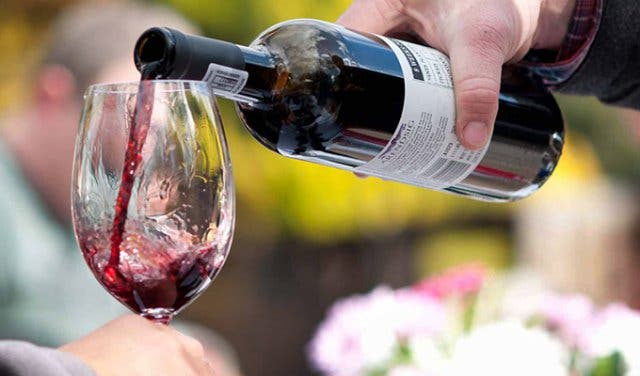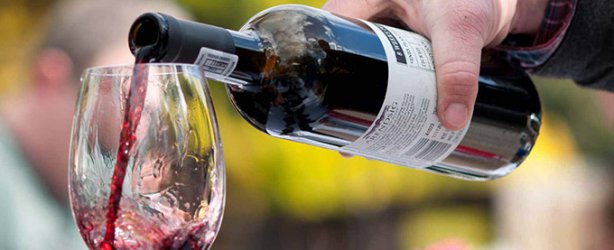Yes, there’s wine, but also art, yoga, cooking classes & kudu macarons
The Health Benefits of Drinking Wine
A license for Cape Town to keep drinking wine
Last Updated: 26 May 2017
In 1679, Simon Van der Stel discovered the mountain ranges and low-lying valleys of Paarl, Drakensberg, Simons Town and Franschoek. The original party animal, he thought these were the perfect soils to grow abundant vineyards for equally abundant wine drinking. Today, wine is still a social lubricant; it looks sexy and tastes even sexier. Of the many pessimists who tell you that everything good in life is actually bad for you, there are a small minority that actually encourages you to drink more. Not only is wine tasty, but there are claims that it reduces the risk of cancer, prolongs your life and reduces the risk of a heart attack. Raise your glass and guzzle away, I’d say!
Can you lose your heart to a glass of red?
You can fall head over heels in love over a glass of red, but you won’t die of a broken heart in the process, say The Harvard School of Public Health. They found that people who drink three to seven times a week reduce their risk of a heart attack. If you drink moderately, you will raise your good cholesterol, improve levels of insulin and reduce blood clots.
Brie and Crepes, although devilishly tasty, can’t be doing the French any good. Yet by some miracle, they suffer from low coronary heart disease. Dr. Serge Renaud, a scientist from Bordeaux University, discovered the answer: copious amounts of red wine are part of the French diet and, as we know, this lowers cholesterol.
Do you know what this means Cape Town? It means that we can stuff our faces with as much boerewors as we like and it won’t matter, as long as we drink a glass of wine with it.

What about patients with type 2 diabetes?
Research done by the University of Massachusetts Amherst discovered that red wine may slow the passage of glucose through the small intestine and eventually into the bloodstream, helping prevent the spike in blood sugar levels experienced by patients with type 2 diabetes. The research proves that because of benefits of red wine, it can actually be part of a diabetic diet plan when consumed in moderation.
The secret to eternal youth: painful botox or a glass of vino?
Hold your needles; throw your silicone implants out of the nearest window; say no to liposuction; pour yourself a glass of red wine and listen carefully. One of the main ways your body ages is by oxidation, so you’re literally rusting at the moment. Awful, isn’t it? But before you resign your fate to a zimmer frame; the Harvard Medical school reckon that red wine contains resveratrol, an antioxidant that multiplies rapidly in order to slow down oxidation.
Look, if you’re serious about the whole eternal youth thing, I’m willing to share a secret with you. Check out Dr. Phillip Norrie, aka the ‘Wine Doctor’: He’s developed a process to produce wine with a higher quantity of resveretol. Just make sure you don’t end up like Benjamin Button…
There’s more… I’m afraid your lungs are rusting at the moment as well
The State University of New York has some reassuring news for people who can’t live without breathing. In a study that compared lung function with alcohol consumption, they found that drinking white wine is more effective in improving lung function. Red wine has more antioxidants than white wine, so this study suggests that it’s not the quantity of antioxidants that’s important, but the quality.
Do you know what this means Cape Town? Have a glass of wine or two before you go out for a jog and you’ll be running much further than the end of your street with those lungs.
Resveratrol can also help to reduce the risk of cancer. The University of Virginia Health system found that the antioxidant helps to starve cancer cells by inhibiting a key protein that feeds them. Just one glass of wine, three to four times a week, is the right amount to block this protein.
“It doesn’t matter which type of wine you drink - they both do you good in moderation. What does matter is that the type of wine you choose goes with your food” – Dr. Phillip Norrie.
Luckily for our city of wine lovers, there is compelling evidence to suggest a connection between moderate drinking and improved health. However, researchers warn that the negative consequences of too much drinking can include; liver damage, impaired driving skills and, in pregnant women, risks to unborn fetuses. The message: wine is best enjoyed in moderation.
By Lisa Nevitt
There's no excuse not to go forth, drink and be merry. Check out our Winelands Section










